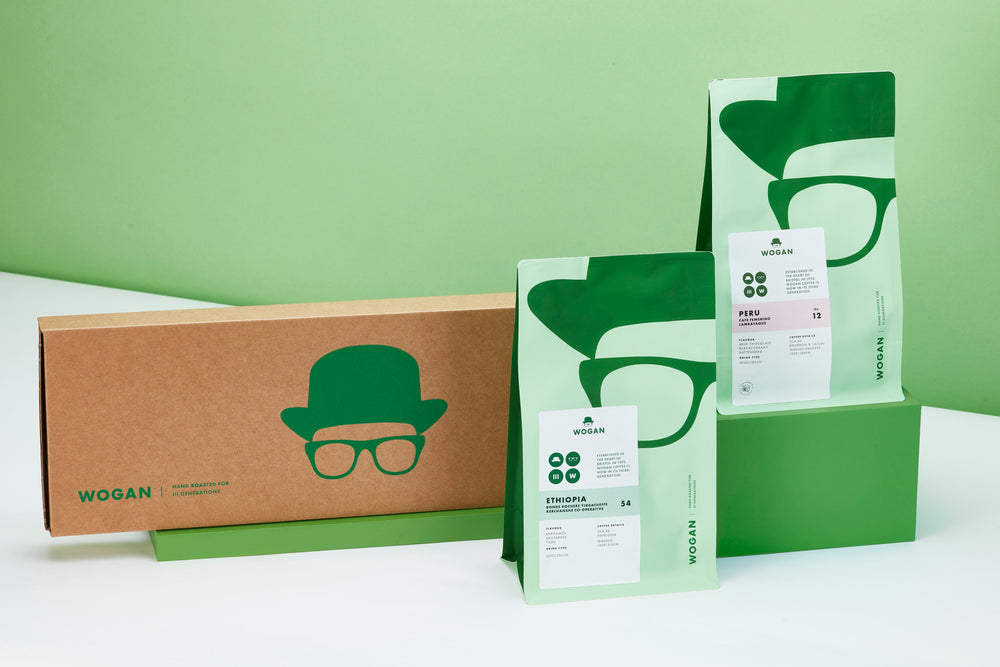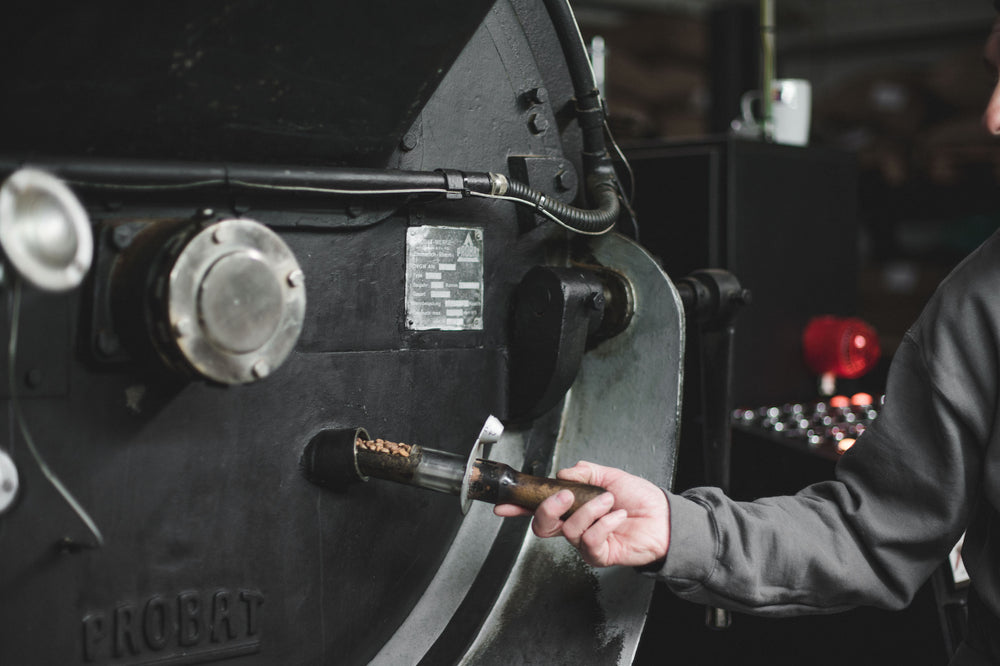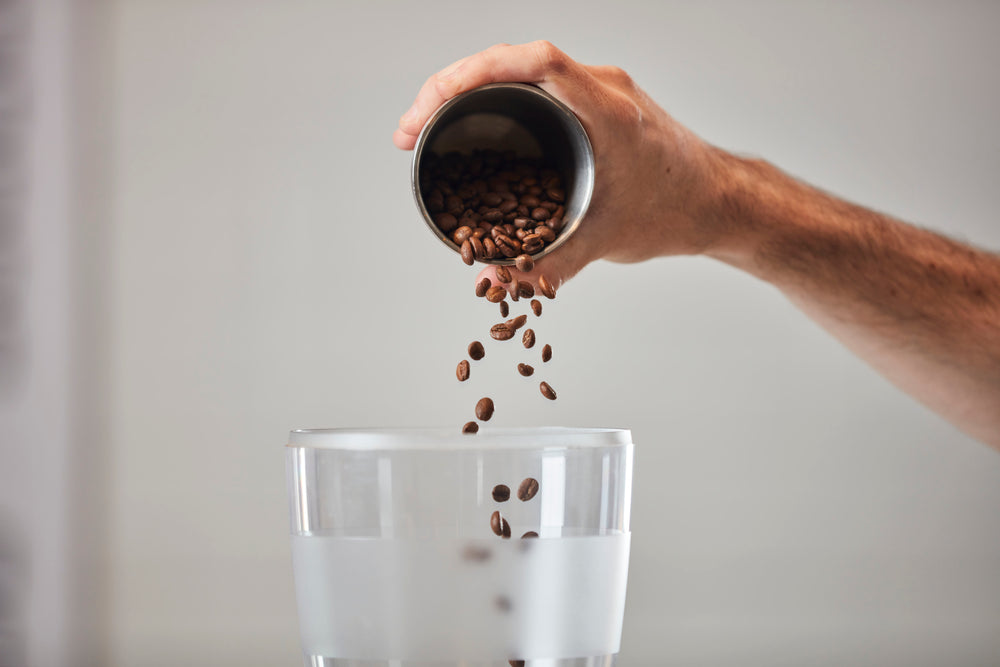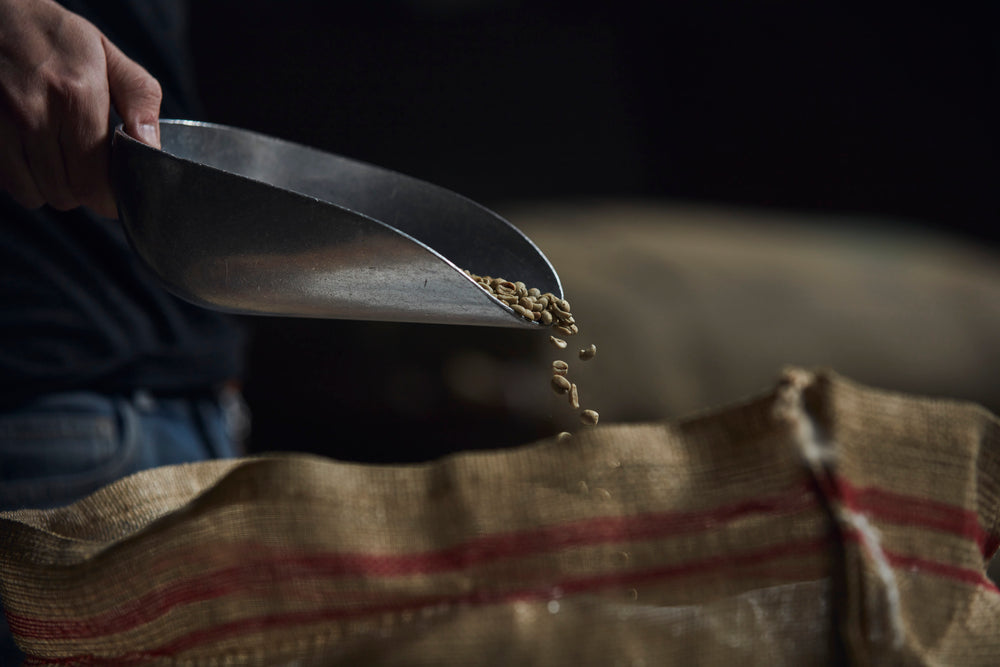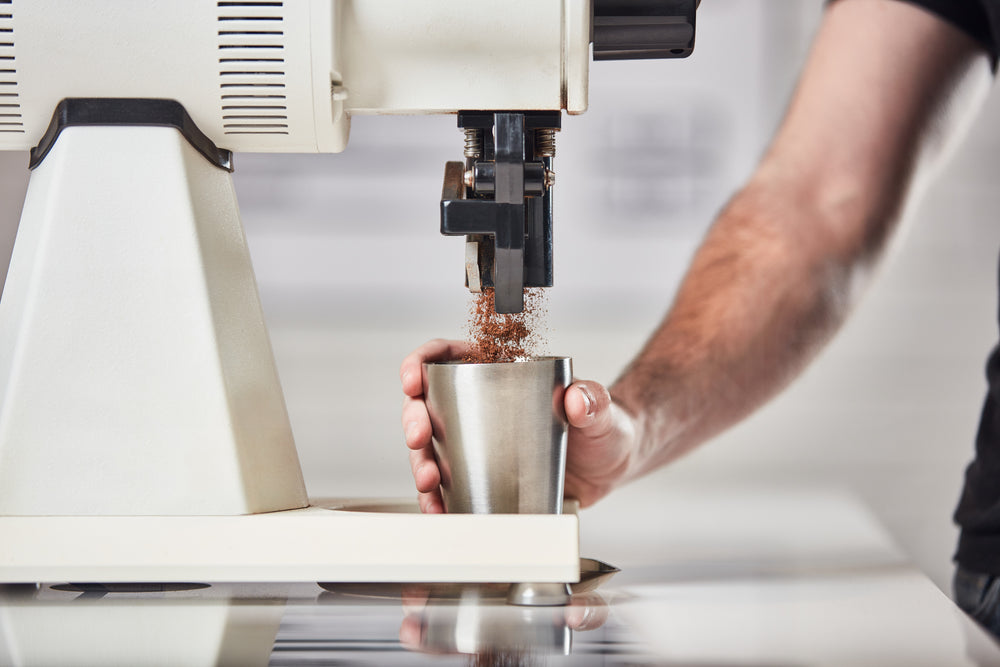
Peru Mountain Water Decaffeinated Coffee Pods
Maple syrup ~ praline ~ milk chocolate
Freshly roasted, and created in house.
Decaffeinated without any chemical element, this coffee is rich and nutty. Notes of maple syrup, praline and milk chocolate.
Organic and Fairtrade certified.
Nespresso compatible, and fully recyclable aluminium capsules.
The coffee
Smallholders across Peru's mountainous landscapes organically farm coffee on plots that are typically less than 1 hectare. Mountain Water decaffeination process offers an alternative to consumers concerned by chemical processes.
Because water processing does not use added chemical compounds, coffees can maintain organic certifications and customers can be assured of the absence of additional chemicals.
The difficulty of decaffeination is that many of the flavour compounds that give coffee its excellent taste are, like caffeine, water-soluble. Thus, any decaffeination method needs to effectively single out and remove the caffeine molecule while preserving as many of the flavour compounds as possible.
The process begins with a batch of green coffee beans that are soaked in water to remove the caffeine. In water, many of the flavour compounds are also removed as well, but don’t worry! This is intentional and will preserve help flavour in the future.
This first batch of beans are then discarded. This process only needs to happen once because the mixture produced by soaking those beans, called green coffee extract (GCE), can be maintained and reused to decaffeinate many batches of green beans.
The principle behind water processing is that water can only absorb a set amount of flavour compounds and caffeine before it is completely saturated. When water is fully saturated, it cannot accept (and remove) any more flavor compounds, even if they’re in the coffee. That first batch of beans created a fully saturated water mixture, the GCE. In order to process the beans for decaffeination, the GCE is run through a filter to remove only the caffeine.
Now the GCE is fully saturated except for caffeine. When a new batch of green beans are placed in the GCE, the only compound from the new beans that will be accepted into the GCE is caffeine, everything else will remain in the beans because the GCE is already saturated with those chemicals and unable to ‘take’ anymore.
The region
Farmers in Peru usually process their coffee on their own farms using the Fully washed method. Cherry is usually pulped, fermented and dried in the sun. Traditionally, smaller farmers would use tarps laid on the ground or under the roof of their homes. Increasingly, cooperatives are establishing centralized drying facilities – usually raised beds or drying sheds where members are encouraged to dry their parchment. Some farmers are beginning to adopt these practices on their own farms, and drying greenhouses and parabolic beds are becoming more common as farmers pivot towards specialty markets.
After drying, coffee will then be sold in parchment to the cooperative. Producers who are not members of a cooperative often have the opportunity to sell on to cooperatives, as well.
- Freshly roasted to order
- Free delivery on orders over £25
- Save 10% on every order, every time
- Flexible & commitment-free cancel anytime
- Pause or skip anytime delivered on your schedule
Why Wogan?


Sustainable and ethical
We've made it this generation's mission to put sustainability at the forefront. We’ve pledged to be Carbon Neutral by 2030 and are well on our way to getting there. LDPE4 recyclable bags, a Roastery powered entirely by solar energy, and a hell of a lot more.

our story
We, at Wogan Coffee, have been lovingly hand-roasting speciality, ethical, sustainable and traceable coffees since 1970. In our third generation, and a wholly independent family company, you can find us rooted in Bristol; the same city as when Mr Wogan established the business over fifty years ago. Laura and James, grandchildren of the bowler hatted gentleman, now have the ropes firmly in their grasp; James as our resident Q Grader in the Bristol Roastery Headquarters, and Laura in London.
